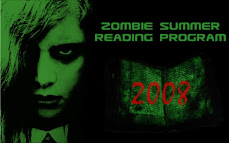 Politics & Pot Roast
Politics & Pot Roast by Sarah Hood Salomon
I Like Food, Food Tastes Good: In the Kitchen With Your Favorite Bands by Kara Zuaro
With either of these two fun little cookbooks, you would expect interesting stories and factual tidbits, though perhaps not the tastiest of cuisine. However, both offer a surprisingly well-rounded collection of recipes one might actually make, despite a few stomach-churners (a la Death Cab for Cutie's Vegetarian Sausage with Peanut Butter, which they swear is good).
Salomon's is composed of brief entries for each of the 43 Presidents, including a little detail about the entertaining and family dining style of each First Family, as well as a handful of favorite dishes served in the White House during the administration.
As I read through the book, I found myself assigning Presidents to one of three groups:
Presidents with whom I would drink:James Madison (Whiskey Sours)
James K. Polk (Bishop, Archbishop, or Pope; port, claret, or Burgandy w/ cloves and citrus)
William McKinley (a fan of the booze-soaked watermelon, which I thought was favored only by frat boys)
George Washington (mint juleps, of course)
Presidents with whom I would sup:Andrew Jackson (Rachel Jackson's Famed Grape Salad and the adorably named Hedgehog Cookies)
William Henry Harrison (Pork Chops with Spiced Apples - Harrison was particular about his cuts of meat, and enjoyed doing his own marketing)
Zachary Taylor (Jambalaya, Corn Friters, Hominy Cheese Grits)
Theodore Roosevelt (Squash or Pumpkin Biscuits)
Presidents with questionable diets:Grover Cleveland (his favorite dish was Bubble and Squeak, a corned beef and cabbage dish named both for the sounds it makes when you eat it, and the sounds your guts make after you eat it)
Martin Van Buren (a lover of stewed beets)
FDR (enjoyed moose w/ grape jelly; martinis with scrambled eggs)
I also found myself noticing patterns that would be described in today's media as elitism in the kitchen. To judge them only by their larders, James Buchanan was an elitist, as were the Grants, the Arthurs, the Wilsons, the Kennedys, and the Fords.
On the other hand, the Eisenhowers appeared to consume nothing but red meat and fudge, the Truman kitchen was delightfully down-to-earth, and the Carters and Clintons ate like it was Sunday dinner at grandma's house.

The rock stars were far better cooks than I would have imagined, although to be fair, most of them are indie rockers, who strike me as more likely to dice and sautee than say, Fred Durst.
Many of the recipes included in
I Like Food, Food Tastes Good are surprisingly fancy-pants, though. I am very keen to try out The Rosebuds's recipe, Zucchini Slippers (a cheese, herb, and bread crumb-stuffed baked zucchini boat), as well as Camera Obscura's Vegetarian Paella.
If you're veggie or vegan, there are a lot of options for you here. But then, of course, there's The Hold Steady, bringin' it like the Midwestern rockers they are with a recipe for a Wisconsin staple, the beer brat.
And
Gwen will be pleased to know that not only are the Drive-By Truckers included in this collection, but their recipe is for none other than banana pudding.
Don't worry, Gwen, as soon as I post this, I am emailing you the recipe.










